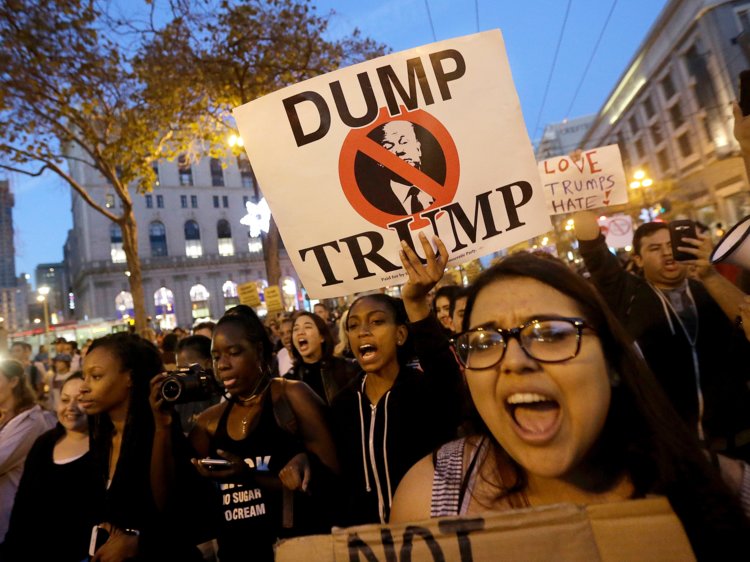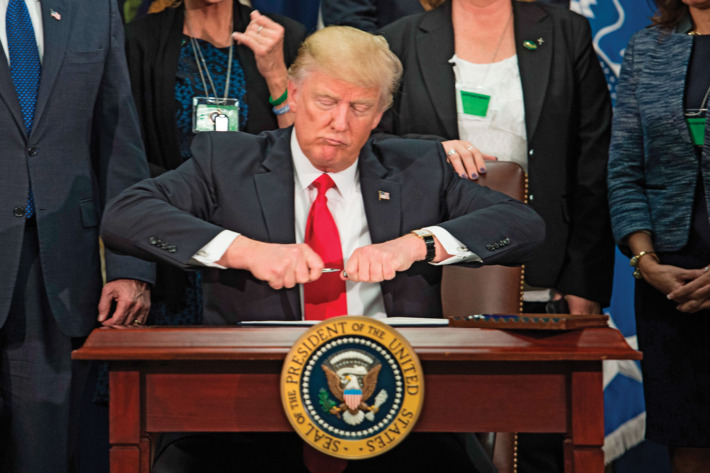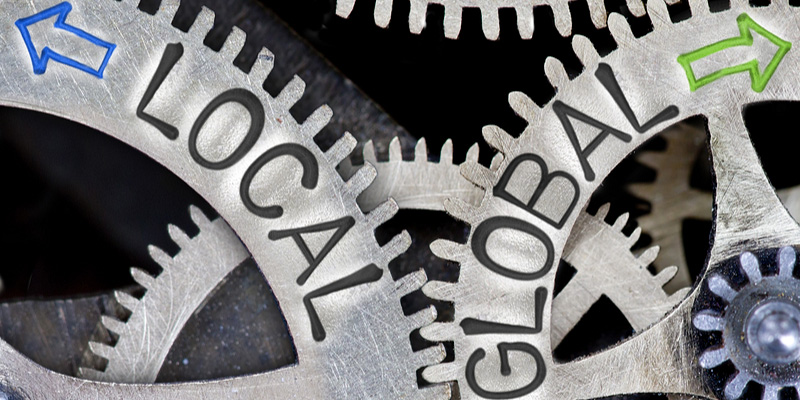At bottom, “localism is the belief that communities can and should find solutions to their own particular problems, within their own particular contexts.” The seeming irrefutability of this idea is precisely why it has become so pernicious.
Localism is a reaction to the global reality in which we all live. As such it is increasing fragmentation rather than producing diverse solutions.
The idea is that “a significant portion of nonmilitary spending in America is done at the state and local levels…this is where people live.” (italics theirs)
Commentators the left say, “The religious right has long understood that local levels is where people live,” and that progressives have to play the same game as the extremists in order to win. Otherwise, decent people will “gravitate toward nihilistic spoiler campaigns like those of Ralph Nader and Jill Stein.”
This is the same mentality that maintains the wishful thinking that Donald Trump’s election is successfully “spurring progressives to search for ways to exert power in the face of terrifying powerlessness.”
The creepy and creeping authoritarianism of Trumpism is a manifestation not the cause, a symptom not the disease, a  distraction not the definition of what ails us. That’s why it doesn’t matter that “one in five Americans have either protested or attended a political rally since the start of 2016.”
distraction not the definition of what ails us. That’s why it doesn’t matter that “one in five Americans have either protested or attended a political rally since the start of 2016.”
Mass numbness of heart and mind has become North America and Europe’s primary condition, and progressives as well as regressives equally share it.
People across the political spectrum utter inanities such as, “our partisan political differences mean nothing when it comes to caring for our towns and making them better. Here at the local level, our interests intertwine: They are practical, achievable, even apolitical.”
One only needs to point to the opioid crisis in America to disprove that thesis. It is not particular to specific towns, but the product of a desire to self-medicate against a broken social system that permeates the culture and affects everyone living in it.
“Handing ownership and power back to those who are most likely to feel hollowed out and powerless in the face of federal stasis,” sounds wonderful, but it’s only increasing tribalism and fragmentation.
There is an urgent necessity to question the game of power itself, because as long as greed and the competition for power remain given, humankind will continue to be riven.
“Local wholeness” is an oxymoron. Tune out and turn your back on the rest of the world, localists on the left and right advocate, since “even if there is plenty that divides us, I am going to focus on what unites us: my town.”
Diversity flows from wholeness, not particularity. The more particular the reaction, the more superficial the response. When we take a whole approach, which means ending tribalistic thinking in all its forms, our minds and hearts are open to creative solutions at all levels.
The grand illusion of progressives is that there’s “a new generation of activists who are part of a historic upsurge in popular protest,” and this will be enough to meet the challenge of Trumpism in America and beyond.
protest,” and this will be enough to meet the challenge of Trumpism in America and beyond.
As a conservative mouthpiece said recently, “We have not hindered him. Trump has more power than he did a year ago, not less.”
Yet willful denial persists in the same pundit: “The main reason Trump won the presidency is that tens of millions of Americans rightly feel that their local economies are under attack, their communities are dissolving and their religious liberties are under threat.”
Again we hear a false and fallacious critique and mindset, as if, like The Donald himself, repeating a lie or half-truth enough times will make it true.
Besides mass numbness, another core reason America elected Trump is that when evildoers are not held to account, as they were not held to account during the “war of choice” and “enhanced interrogation” torture years of the Bush-Cheney Administrations, a greater evildoer assumes power.
Another, much more devastating war is inevitable.
Yet poobahs on the left wring their hands: “All over the world, right-wing populism is ascendant, and so far we have little evidence that multiracial left-wing populism can successfully challenge it.” That’s because left-wing populism is just as stupid as right-wing populism.
‘Radical’ means to ‘go to the root,’ and radical change has become imperative. End tribalism in all its forms, from party identification, to nationalism, to localism.
Embrace the whole of humanity to the extent of your inward and intellectual capacity. Then act locally, nationally and globally.
Martin LeFevre

